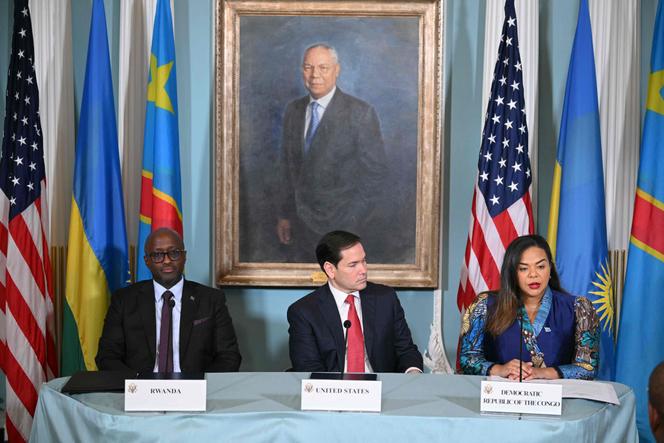


The Democratic Republic of Congo and Rwanda on Friday, June 27, signed a peace deal facilitated by the US to help end the decades-long deadly fighting in eastern Congo while helping the US government and American companies gain access to critical minerals in the region.
Secretary of State Marco Rubio called it "an important moment after 30 years of war." Earlier on Friday, President Donald Trump said at a news conference that he was able to broker a deal for "one of the worst wars anyone’s ever seen": "I was able to get them together and sell it. And not only that, we’re getting for the United States a lot of the mineral rights from Congo."
The deal has been touted as an important step toward peace in the Central African nation of Congo, where conflict with more than 100 armed groups, the most potent backed by Rwanda, has killed millions since the 1990s. It’s also at the heart of Trump’s push to gain access to critical minerals needed for much of the world’s technology at a time when the US and China are actively competing for influence in Africa. Analysts see the deal as a major turning point but don’t believe it will quickly end the fighting.
Congo’s Foreign Minister Thérèse Kayikwamba Wagner invoked the millions of victims of the conflict in signing the agreement with Rwandan Foreign Minister Olivier Nduhungirehe. Both expressed optimism but stressed significant work still to do to end the fighting. "Some wounds will heal, but they will never fully disappear," Wagner said. "Those who have suffered the most are watching. They are expecting this agreement to be respected, and we cannot fail them."
Nduhungirehe noted the "great deal of uncertainty" because previous agreements were not put in place. "There is no doubt that the road ahead will not be easy," he said. "But with the continued support of the United States and other partners, we believe that a turning point has been reached."
They, along with Rubio, lauded the support of the Gulf Arab nation of Qatar in facilitating the agreement, which Doha has been working on for months at the request of the US and others. The agreement has provisions on territorial integrity, prohibition of hostilities and the disengagement, disarmament and conditional integration of non-state armed groups.
The deal is at the heart of the US government’s push to counter China in Africa. For many years, Chinese companies have been a key player in Congo’s minerals sector. Chinese cobalt refineries, which account for a majority of the global supply, rely heavily on Congo.
The conflict can be traced to the aftermath of the 1994 genocide in Rwanda , where Hutu militias killed between 500,000 and 1 million ethnic Tutsi, as well as moderate Hutus and Twa, Indigenous people. When Tutsi-led forces fought back, nearly 2 million Hutus crossed into Congo, fearing reprisals.
Rwandan authorities have accused the Hutus who fled of participating in the genocide and alleged that elements of the Congolese army protected them. They have argued that the militias formed by a small fraction of the Hutus are a threat to Rwanda’s Tutsi population. Since then, the ongoing conflict in east Congo has killed 6 million people, in attacks, famines and unchecked disease outbreaks stemming from the fighting.
